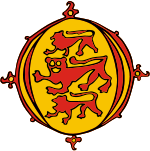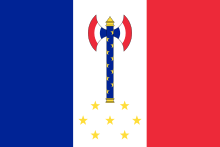List of wars involving Croatia
The following is an incomplete list of wars fought by Croatia, by Croatian people or regular armies during periods when independent Croatian states existed, from antiquity to the present day.
The list gives the name, the date, combatants, and the result of these conflicts following this legend:
- Croatian victory
- Croatian defeat
- Another result (e.g. a treaty or peace without a clear result, status quo ante bellum, result of civil or internal conflict, result unknown or indecisive)
Kingdom of Croatia (925–1102)
| Date | Conflict | combat 3 | Combatant 2 | Result defeat |
|---|---|---|---|---|
| 854 | First Croatian-Bulgarian war | Duchy of Croatia Kingdom of Croatia |
|
Indecisive |
| 925-931 | Second Croatian-Bulgarian war | Duchy of Croatia Kingdom of Croatia |
|
Victory |
| 968-1018 | Byzantine conquest of Bulgaria | Byzantine Empire Kievan Rus' (968-969) Kingdom of Hungary Principality of Duklja Kingdom of Croatia |
Bulgarian Empire Kievan Rus' (970-971) Pechenegs |
Victory |
| 997-1000 | Third Croatian-Bulgarian war | Duchy of Croatia Kingdom of Croatia |
|
Defeat |
| 1097 | Battle of Gvozd Mountain | Kingdom of Croatia (allies of king Petar Svačić) |
|
Defeat
|
Kingdom of Hungary/Austria-Hungary (1000–1918)
| Date | Conflict | Combatant 1 | Combatant 2 | Result |
|---|---|---|---|---|
| 1105 | Siege of Zara and occupation of Dalmatia | Dalmatian cities Venice |
Hungarian victory | |
| 1108 | Hungarian war with the Holy Roman Empire | Duchy of Bohemia |
Hungarian victory | |
| 1108–1126 | Hungarian – Bohemian wars | Duchy of Bohemia | Peace agreement | |
| 1115–1119 | Hungarian – Venetian wars | Hungarian defeat | ||
| 1123 | Stephen II's intervention in the Kievan Rus' internal conflict | Iaroslav from Vladimir |
Kievan Rus' | Hungarian retreat |
| 1124–1125 | Hungarian – Venetian war | Hungarian defeat | ||
| 1127–1129 | Byzantine-Hungarian War (1126–29) | Serbian Grand Principality |
Peace agreement | |
| 1132 | Hungarian – Polish war | Duchy of Austria |
|
Hungarian victory |
| 1136–1137 | Béla II's balcanic campaigns (against Venice and the Byzantine Empire) | Hungarian victory | ||
| 1146 | German – Hungarian war | Duchy of Bavaria Duchy of Austria |
Hungarian victory | |
| 1149–1152 | Géza II's intervention in the conflict between the Principality of Halych and Kievan Rus' | Kievan Rus' |
Principality of Halych | Peace agreement |
| 1148–1155 | Hungarian – Byzantine wars | Serbian Grand Principality |
ceasefire | |
| 1162–1165 | Hungarian civil war between Stephen III and his uncles Ladislaus and Stephen | Ladislaus and Stephen's army |
Stephen III's victory | |
| 1167 | Battle of Sirmium | Banate of Bosnia |
Serbian Grand Principality |
Decisive Byzantine victory |
| 1180–1184 | Hungarian – Byzantine war | Hungarian victory | ||
| 1188–1189 | Béla III's military campaign against Halych | Principality of Halych | Hungarian victory | |
| 1197–1199 | Civil war between Emeric king and his brother Andrew | Andrew's army | Emeric's victory | |
| 1201–1205 | Emeric's balcanic wars | Grand Principality of Serbia Bosnia |
Hungarian victories | |
| 1202 | Siege of Zara | soldiers of the fourth crusade |
Hungarian defeat | |
| 1213–1214, 1219, 1233–1234 | Andrew II's military campaigns against Halych | Principality of Halych | Hungarian retreat | |
| 1217–1218 | Andrew II's participation in the Fifth crusade | Archduchy of Austria |
Hungarian retreat | |
| 1237 | Bosnian Crusade | "heretics" within the Banate of Bosnia | Hungarian retreat | |
| 1241–1242 | Mongol invasion of Hungary | mongols | decisive mongol victory | |
| 1243 | Siege of Zara | Hungarian defeat | ||
| 1246 | Battle of Leitha | Archduchy of Austria | Austrian retreat | |
| 1250–1278 | Hungarian – Bohemian wars | Duchy of Austria |
Bohemian defeat | |
| 1264–1265 | Internal conflict between Béla IV and his son, Stephen | Stephen's army | Stephen's victory, he got eastern Hungary as a duchy | |
| 1268 | Mačva War | Béla IV of Hungary | Peace | |
| 1272–1279 | Feudal anarchy | Csák noble family |
Kőszegi noble family Gutkeled noble family |
Royal victory |
| 1277 | Stefan Dragutin-Stefan Uroš I conflict | Stefan Dragutin |
Stefan Dragutin | |
| 1277 | Hungary's war with the vlach ruler, Litovoi | Hungarian victory | ||
| 1282 | Cumanic uprising | cumanic tribes | Hungarian victory | |
| 1285 | Mongol attack against Hungary | mongol retreat | ||
| 1291 | German – Hungarian war | Hungarian victory | ||
| 1292–1300 | Andrew III's war with the Kőszegi Hungarian noble family | Kőszegi family | Andrew's victory | |
| 1301–1308 | Hungarian interregnum, fightings for the country's throne | Duchy of Austria Máté Csák's army László Kán's army |
Duchy of Bavaria Kőszegi Hungarian noble family |
Charles became Hungarian king |
| 1310–1321 | Charles I's wars for the centralized power against the Hungarian aristocracy | Máté Csák Aba family Borsa family Apor family Kőszegi family |
Royal victory, centralization of the Hungarian Kingdom | |
| 1317 | Belgrade and Banate of Mačva | Charles I | ||
| 1322–1337 | Hungarian–Austrian War | Duchy of Austria Holy Roman Empire Kőszegi family Babonić Croatian noble family |
status quo ante bellum | |
| 1321–1324 | Hungarian–Serbian War | Bosnia Stephen Vladislav II of Syrmia |
Hungarian defeat | |
| 1330 | Hungarian-Wallachian War | Hungarian defeat in the battle of Posada | ||
| 1347–1349, 1350–1352 | Hungarian-Naples Wars | First campaign: temporary Hungarian victory Second campaign: status quo ante bellum | ||
| 1345–1358 | Hungarian–Venetian War | Republic of Venice | Treaty of Zadar | |
| 1345 | Hungary's war with the Golden Horde | Hungarian victory, liberation of Moldavia under mongol rule | ||
| 1360–1369 | Louis I's balcanic wars (against Serbia, Bulgaria, Wallachia and Bosnia) |  Second Bulgarian Empire Second Bulgarian Empire Bosnia |
Temporary Hungarian victories | |
| 1366–1367 | Hungarian–Osman War | Christian victory | ||
| 1372–1381 | War of Chioggia | Paduan military victory, practically status quo ante bellum | ||
| 1375–1377 | Hungarian–Osman War | Hungarian victory | ||
| 1384–1394 | Civil war between a part of the Hungarian nobility and Mary, Queen of Hungary and Sigismund king | Horváti family |
Sigismund's victory | |
| 1391–1396 | Hungarian–Osman War | Moravian Serbia |
Christian defeat in the Battle of Nicopolis | |
| 1411–1433 | Hungarian–Venetian War | Republic of Venice | Dalmatia became part of Venice | |
| 1415–1419 | Hungarian–Osman War | Stalemate | ||
| 1419–1434 | Hussite Wars | Holy Roman Empire |
hussites | defeat of radical hussites |
| 1428–1432 | War of the South Danube | Armistice | ||
| 1437 | Budai Nagy Antal revolt | transilvanian peasants | Defeat of the rebels | |
| 1437–1442 | Hungarian–Ottoman border conflicts, Ottoman raids in South-Hungary and Transylvania | Hungarian victory | ||
| 1440–1442 | Civil war between Wladyslaw I and Ladislaus | Hungarian nobles |
Cillei family and other Hungarian nobles | Peace agreement, Wladyslaw is accepted as Hungarian king |
| 1443–1444 | Long campaign | Hungarian retreat | ||
| 1444–1448 | Hungarian–Ottoman War (1444, Crusade of Varna) |
Moravian Serbia |
Hungarian retreat | |
| 1456 | Siege of Belgrade | Hungarian victory | ||
| 1458–1459 | Matthias I's war with Ján Jiskra | Jiskra's soldiers | Royal victory | |
| 1458–1465 | War in Bosnia | A part of Bosnia is occupied by the Ottoman Empire | ||
| 1465–1471 | Hussite uprising in North-Hungary | Czech hussite rebels | Hungarian victory | |
| 1467 | Hungarian - Moldavian war | Moldavia | Hungarian defeat in the battle of Baia | |
| 1468–1478 | Bohemian War (1468-1478) | Kingdom of Bohemia | Treaty of Olmütz, Matthias became king of Bohemia | |
| 1471–1476 | Matthias's intervention in the Moldovian – Osman War | Moldavia |
After initial Hungarian-moldavian victories Hungary stopped the advocating of Moldavia, so Stephen III moldavian ruler became vasal of the Ottoman Empire. | |
| 1479 | Battle of Breadfield | Hungarian victory | ||
| 1480–1481 | Battle of Otranto | Christian victory | ||
| 1482–1488 | Austrian-Hungarian War (1477-1488) | Holy Roman Empire | Hungarian victory, capture of Wien in 1485 | |
| 1490–1491 | War of Hungarian succession | Kingdom of Bohemia | Holy Roman Empire Kingdom of Poland (the two countries were not allies) |
The bohemian king, Wladislaus won over the polish army and get the Hungarian throne, but is defeated by the Holy Roman Empire's army, which conquested back Wien and the other parts of Austria. |
| 1491–1495 | Hungarian – Osman war | Stalemate | ||
| 1492–1493 | The Black Army's uprising | Black Army | Destruction of the black army | |
| 1499–1504 | Hungarian – Osman war | Stalemate | ||
| 1512–1520 | Hungarian – Osman war | Successful defensive operations against the Ottomans | ||
| 1514 | Peasants revolt, led by György Dózsa | |
Peasants | Revolt suppressed |
| 1521–1526 | Hungarian – Osman war (ended with the Battle of Mohács) | Hungarian defeat, partitioning of the medieval Hungarian kingdom | ||
| 1552 | Siege of Eger | Victory | ||
| 1573 | Croatian–Slovene Peasant Revolt | Croatian and Slovenian peasant rebels | Peasant defeat | |
| 1899-1901 | Boxer Rebellion | Eight-Nation Alliance | Victory | |
| 1914-1918 | World War I | Central Powers |
Allied Powers |
Allied Victory |
Kingdom of Yugoslavia (1918–1943)
| Date | Conflict | Combatant 1 | Combatant 2 | Result |
|---|---|---|---|---|
| 1919 | Christmas Uprising | |
|
Victory
|
| 1941 | Invasion of Yugoslavia Part of the World War II |
|
|
Defeat
|
Independent State of Croatia (1941–1945)
| Date | Conflict | Combatant 1 | Combatant 2 | Result |
|---|---|---|---|---|
| 1941-1945 | Eastern Front (World War II) Part of the World War II |
Axis powers Axis puppet states Co-belligerents |
Allies Former Axis powers or co-belligerents Aerial role only |
Defeat
|
Socialist Federal Republic of Yugoslavia (1945–1992)
| Date | Conflict | Combatant 1 | Combatant 2 | Result |
|---|---|---|---|---|
| 1975-2002 | Angolan Civil War | Executive Outcomes (1992-95) |
|
Victory
|
Modern (1991-present)
References
- ↑ Tuchman, 548
- ↑ Germany's allies, in total, provided a significant number of troops and material to the front. There were also numerous foreign units recruited by Germany, notably the
.svg.png) Spanish Blue Division and the
Spanish Blue Division and the  Legion of French Volunteers Against Bolshevism.
Legion of French Volunteers Against Bolshevism. - ↑ Toomas Alatalu. Tuva: A State Reawakens. Soviet Studies, Vol. 44, No. 5 (1992), pp. 881–895.
- 1 2 Calic, Marie-Janine (2012). "Ethnic Cleansing and War Crimes, 1991–1995". In Ingrao, Charles W.; Emmert, Thomas A. Confronting the Yugoslav Controversies: A Scholars' Initiative. West Lafayette, IN: Purdue University Press. pp. 139–140. ISBN 978-1-55753-617-4. Footnotes in source identify numbers as June 2012.
- 1 2 "Spolna i nacionalna struktura žrtava i ljudski gubitci vojnih formacija (1991–1996)". Prometej.
This article is issued from Wikipedia - version of the 11/15/2016. The text is available under the Creative Commons Attribution/Share Alike but additional terms may apply for the media files.